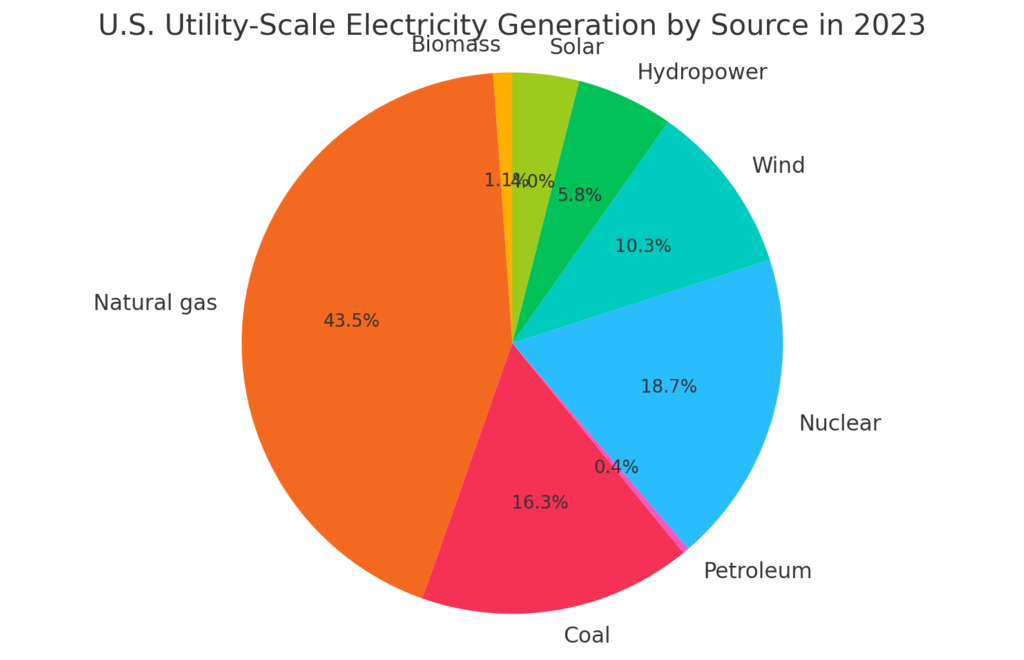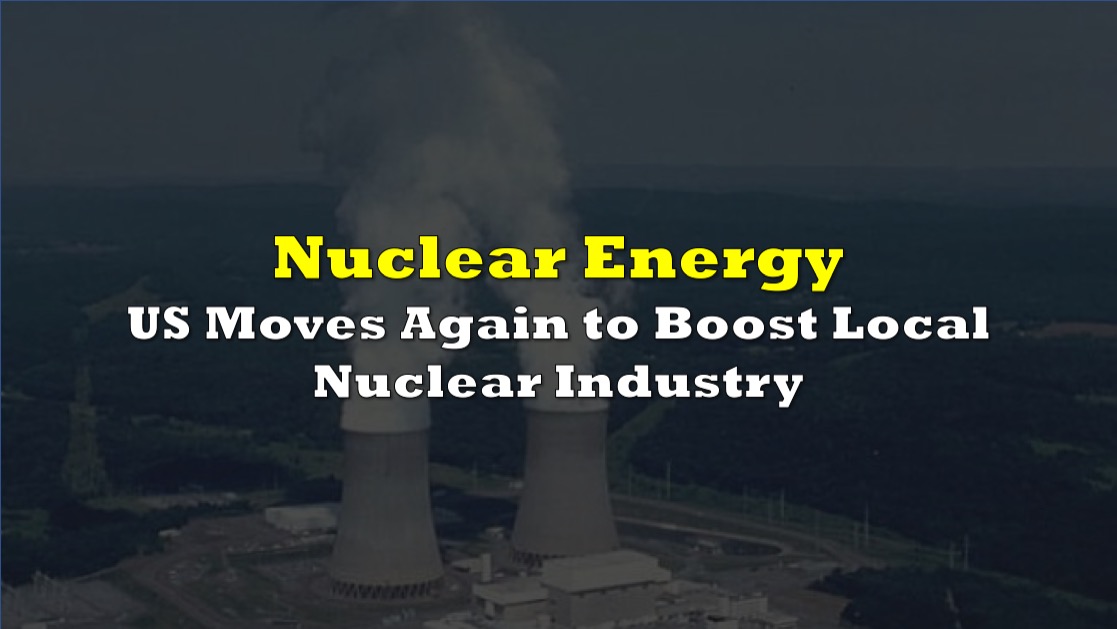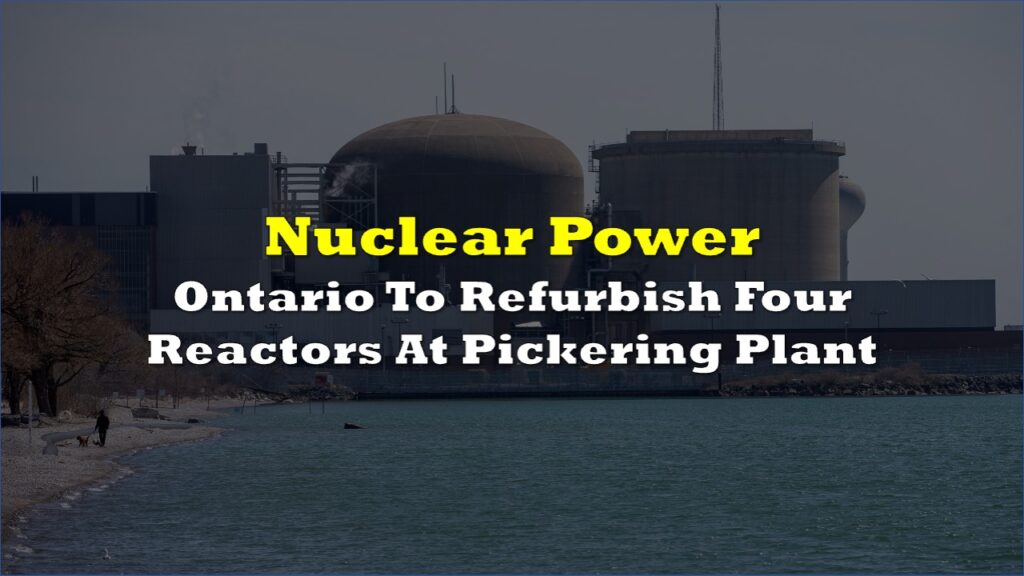The Biden administration has announced steps to bolster the domestic nuclear industry and advance America’s clean energy future. As part of these efforts, the administration is hosting a White House Summit on Domestic Nuclear Deployment, emphasizing the critical role of nuclear power in achieving a carbon-free electricity sector by 2035.
Nuclear power, currently the largest source of clean energy in the United States, accounted for 19% of the nation’s total energy production last year. The industry directly employs nearly 60,000 workers and supports hundreds of thousands more. The administration’s actions aim to strengthen energy and economic security by reducing reliance on Russian uranium and building a new supply chain for nuclear fuel.

Heather Exner-Pirot, Macdonald-Laurier Institute’s Director of Energy, Natural Resources and Environment, highlighted the importance of these developments on X, particularly in the context of military and remote installations. She noted the use of microreactors at Arctic bases and other sites can be used to address the emissions and logistical challenges posed by diesel.
At our NORAD and the North event on Monday we discussed, among many things, the use of microreactors at Arctic bases and sites to replace the emissions and logistical challenges of diesel. Now here is US Army putting out a deployment program for its bases:https://t.co/aq2ssPJUb3 https://t.co/8DFWVCILBI pic.twitter.com/4tdzOVycEQ
— Heather Exner-Pirot (@ExnerPirot) May 30, 2024
Key Developments
The White House Summit on Domestic Nuclear Deployment brings together experts from various sectors to discuss the progress and future steps needed for nuclear energy deployment. This includes extending the service lives of existing reactors and developing new reactor designs.
A newly created Nuclear Power Project Management and Delivery Working Group will focus on mitigating cost and schedule overruns in nuclear projects. It will include members from federal entities, project developers, utilities, investors, labor organizations, and academics.
“The working group will engage a range of stakeholders…to help further the Administration’s goal of delivering an efficient and cost-effective deployment of clean, reliable nuclear energy,” according to the White House briefing.
The U.S. Army plans to release a request for information to inform the deployment of advanced reactors at multiple Army sites. These reactors, including small modular nuclear reactors and microreactors, are designed to provide resilient energy amidst various threats.
The Department of Energy (DOE) has also released a primer on the enhanced safety of advanced nuclear reactors and a new capital cost reduction pathway tool. The completion of units 3 and 4 at the Vogtle nuclear power plant in Georgia, supported by $12 billion in loan guarantees from the DOE Loan Programs Office, marks a significant achievement. The White House boasted, “The Vogtle site is now the largest source of clean power in America, with four operating nuclear reactors.”
The Palisades nuclear plant in Michigan is set to restart with the help of a $1.5 billion loan commitment from DOE. Additionally, the Diablo Canyon plant in California will receive funding from DOE’s Civil Nuclear Credit program to extend its life.
DOE’s Advanced Reactor Demonstration Program (ARDP) is also funding nuclear demonstration projects, with US President Joe Biden having signed a Congressional appropriations package to support up to two Gen III+ SMR demonstration projects.
The White House also touted signing the “Prohibiting Russian Uranium Imports Act” into law, banning Russian uranium imports and unlocking $2.72 billion to jumpstart new U.S. enrichment capacity. Centrus Energy Corporation produced the nation’s first 100 kilograms of high-assay low-enriched uranium, crucial for advanced reactor designs.
The Consolidated Appropriations Act of 2024 is said to have allocated $100 million for nuclear workforce training programs, and DOE’s ARPA-E is funding early-stage R&D programs for advanced nuclear technologies.
“Taken together, these actions represent the largest sustained push to accelerate civil nuclear deployment in the United States in nearly five decades,” touts the White House.
The move comes following the US government announcing request for bids from suppliers for contracts worth up to $3.4 billion to produce nuclear reactor fuel domestically. The majority of the funding, approximately $2.7 billion, was made available after Biden signed the ban on imports of enriched uranium from Russia. Several companies, including Centrus Energy Corp., ConverDyn, and Global Laser Enrichment, are expected to compete for the funding, which is also expected to benefit domestic uranium mining companies.
Information for this story was found via The White House and the sources mentioned. The author has no securities or affiliations related to the organizations discussed. Not a recommendation to buy or sell. Always do additional research and consult a professional before purchasing a security. The author holds no licenses.











